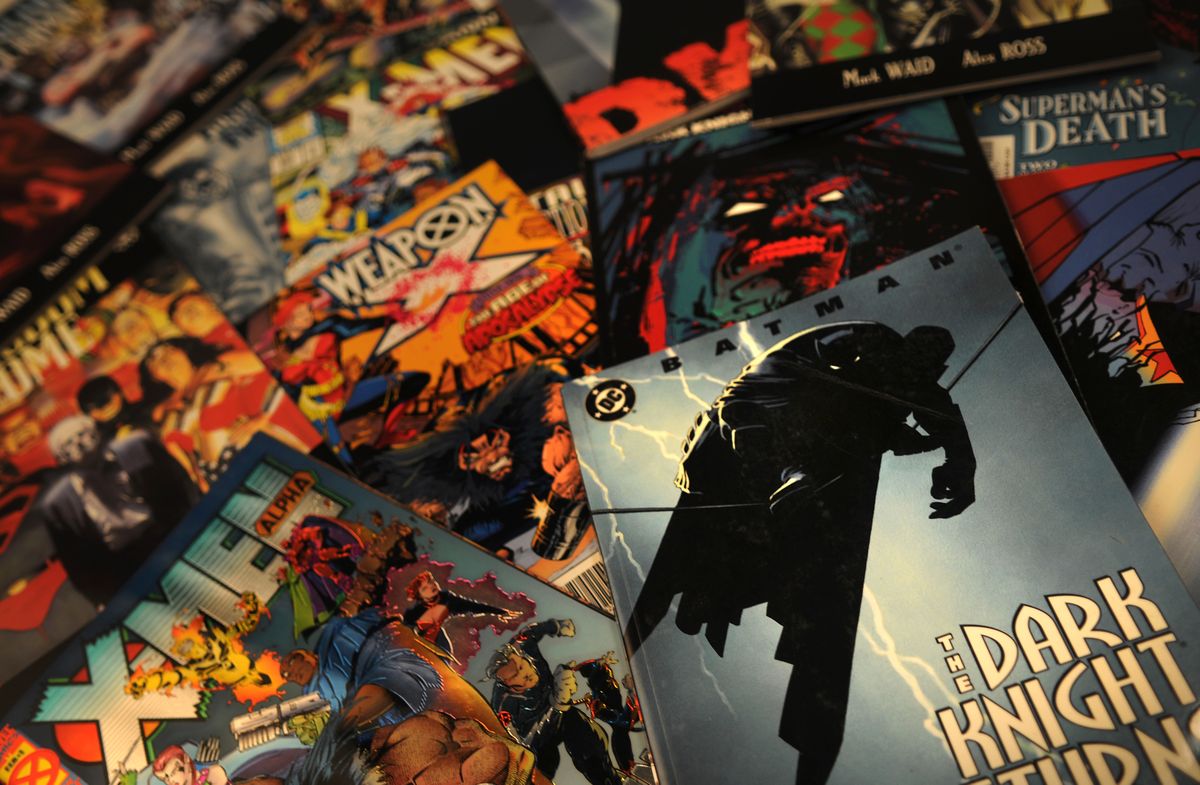keeping it unreal
Films stay true to comic-book source

Comics used to be something you found either at newsstands or in your daily newspaper. And if you wanted color comics, you had to wait for Sunday’s paper.
Today, comics are all over the place – in the paper, in bookstores, on TV and on the Internet.
And for some time now, some print version of comics haven’t even gone by that traditional name. These days, many comics go by the far more sophisticated – if not pretentious – title of “graphic novel”.
Seems fitting. In the late 1970s, when Art Spiegelman began telling his animated Holocaust tales he called “Maus,” the term “comic” just didn’t apply. Same with writers such as Will Eisner, Alan Moore and Frank Miller among others whose works were anything but … well, comic.
Here’s the thing, though: There’s nothing that Hollywood can’t screw up, and that may be especially true with graphic novels. One of the great things about the best graphic novels is that they don’t fit any easily described format.
Hollywood, on the other hand, does its best to take any sense of originality and reframe it – or, if you prefer, tame it – for mainstream tastes. And in most cases, this sucks the very life out of any movie adaptation of pretty much anything.
Given this, we thought we would take the opportunity to – on the day that Christopher Nolan’s “The Dark Knight” is released – to look at what arguably are the best, and worst, movies adapted from graphic novels.
Feel free to agree. Or not.
The Top 5
“Batman” (1989): I’ve never been a fan of Jack Nicholson’s Joker. And if you consider the dark depths to which Nolan has taken the movie franchise (see 2005’s “Batman Begins”), Tim Burton’s film feels oddly precious these two decades later. The look of the film, though – thanks mainly to the late production designer Anton Furst – remains first-rate. And Burton’s weird sensibilities helped divorce the character of Batman/Bruce Wayne from the days of the Adam West television show, capturing the tone of Frank Miller’s remake of Bob Kane’s original creation and thereby setting the tone for all the better superhero tales to come.
“V for Vendetta” (2005): Alan Moore’s strikingly original work (illustrated by David Lloyd) is largely a tract for anarchist (or libertarian) politics posing as a kind of vigilante superhero adventure. Enough of the novel’s originality passed over into the film, directed by James McTeigue (but looking very much the creation of co-producers Andy and Larry Wachowski of “The Matrix” fame), to make “V for Vendetta” one of the strongest political statements made by a major Hollywood studio (Warner Bros.) in the post-9/11 era.
“The Road to Perdition” (2002): To star in this movie version of a noir-themed graphic novel (by Max Allan Collins and Richard Piers Rayner), Tom Hanks had to rid himself of the last vestiges of “Forrest Gump” squirreliness. Instead, likely thanks to the direction of Sam Mendes (“American Beauty,” “Jarhead”), Hanks seldom cracks a smile and proves handy-dandy with a Tommy gun. Look for Paul Newman as the double-dealing father figure and a pre-James Bond Daniel Craig as the psychopathic jealous sibling.
“American Splendor” (2003): Harvey Pekar’s graphic novels (featuring a number of illustrators) have little to do with superheroes, unless you accept the notion that overcoming the obstacles life throws at you is a heroic exercise. Especially when those obstacles involve Pekar’s inherent inhibitions, which would stun an elephant. Or your typical resident of Krypton. And in the transfer to the big screen, co-directors Shari Springer Berman and Robert Pulcini meld aspects of documentary with narrative style to create a satisfyingly smart and poignant hybrid.
“Ghost in the Shell” (1995): I had to put at least one manga-based film on the list, and this one is by far my favorite (with maybe 1988’s “Akira” coming in second). Director Mamoru Oshii, adapting the comic series by Masamune Shirow, follows the plot of a Japanese special police squad ferreting out cyber crime, particularly that committed by an entity called The Puppet Master. Below the surface, though, the film is nothing less than an existentialist study of what it means to be human when the very definition of consciousness is changing.
The Bottom 5
“Spawn” (1997): What Hollywood did to this creation of one-time Spokane resident Todd McFarlane is a perfect example of how movies substitute computerized special effects for … uh, something resembling an actual story?
“The Fantastic Four” (2005)/“Rise of the Silver Surfer” (2007): Oh, please, update your attitudes from the 1950s. There are more important things than, say, your wedding décor.
“Daredevil” (2003): He’s blind, he’s bad, he’s … Ben-freaking-Affleck?
“Ghost Rider” (2007): Nicolas Cage was once a decent actor, an Oscar winner even. But, hell, even Ian McKellan couldn’t have done anything with this joke of a character.
“Howard the Duck” (1986): There are far worse films out there. But I wanted to make sure that people remember what kind of crap George Lucas creates whenever he steps away from his “Star Wars” or “Indiana Jones” paychecks.